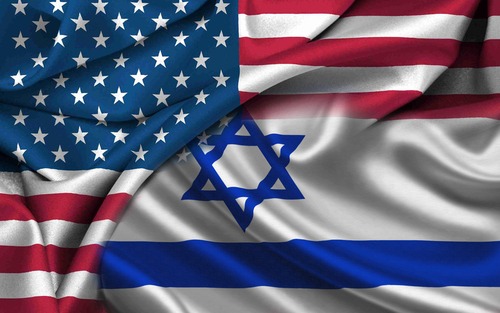
Following weekend attacks by Hamas that caught Israel off guard and launched a declaration of war, the United States reiterated its support for its traditional Middle East ally, as fears of escalation grew.
While Israel now claims its border with Gaza to be secure – three days after a Hamas attack that reportedly killed around 1,000 people on the Israeli side and saw more than a hundred abducted – it has moved onto bombardments of the isolated Gaza Strip, where the Hamas-run health ministry reported more than 750 killed and thousands injured. Palestinian civilians currently have little option for places to run, given land, sea and air restrictions in place in the region since long before the attack.
The United States supplies Israel with approximately $3.8 billion of military aid annually. Language from U.S. officials was telling, however, and efforts are underway to surge as much support as possible to Israel. The deaths of 11 Americans in the initial attack by Hamas and the potential kidnapping of others may have also shifted the international calculus.
“While we are still working to confirm, we believe it is likely that American citizens may be among those being held by Hamas,” President Joe Biden said in a written release. “I have directed my team to work with their Israeli counterparts on every aspect of the hostage crisis, including sharing intelligence and deploying experts from across the United States government to consult with and advise Israeli counterparts on hostage recovery efforts.”
The Pentagon dispatched the USS Gerald R. Ford Carrier Strike Group, including an aircraft carrier, missile cruisers and destroyers to the area over the weekend. Quoting a senior defense official, the Department of Defense (DoD) itself noted that U.S. military leadership was making clear to allies and adversaries alike that the United States would not tolerate anyone seeking to take further advantage of the instability. The United States has long supported Israel’s right to defend itself.
While it could compete with U.S. commitments to Ukraine – already jeopardized by paralysis in the House – the Biden administration is also surging the equipment it already promised in annual U.S. military assistance to Israel. Further funding would require approval from Congress.
“We remain in constant, ongoing contact with our counterparts in Israel to determine, and then support, their most urgent requirements,” a senior defense official quoted by the DoD said. “The bottom line is we are working as fast as possible to provide critically needed munitions of various types and other equipment.”
At the same time, Secretary of Defense Lloyd James Austin III stated that U.S. Air Force F-35, F-15, F-16, and A-10 fighter aircraft squadrons in the region were being augmented for further deterrence.
That the war has likely changed Middle East policy though seems a certainty. Talk of a security deal between Israel and Saudi Arabia focused on isolating Iran has now been set aside in the face of mounting casualties. The language used by the United States to describe events is also telling, having shifted from the usual descriptions of flare-ups between Hamas and Israel as something different, and worse, than previously seen.
“I want to differentiate this from other times we have seen conflicts between Israel and Hamas in Gaza,” the defense official said. “This is ISIS-level savagery that we have seen committed against Israeli civilians — houses burned to the ground, young people massacred at music festivals.”
In its statement, the DoD also cited the specter of Iran, noting the U.S. adversary in the region has supported Hamas and the Lebanese-based Hezbollah for years with equipment, training and guidance. While it stopped short of saying Iran was behind this attack, it noted the country has fomented violence in the region for a long time. Notably, Hamas claimed after the attacks that its efforts were backed by Iran, but Iran denied its involvement over the weekend.

